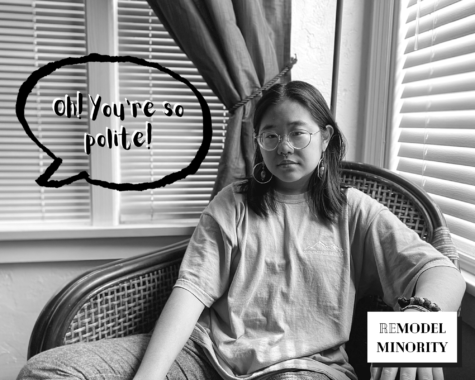
“You’re so polite!”
After a friend said this to me, I was a bit confused and didn’t know how to respond. I just smiled and said, “Thanks.”
Over the years I’ve had people tell me that I’m well-mannered, and even comment that I apologize too often when I make tiny errors or create any sort of inconvenience.
Part of my over-politeness is that I’ve grown up with my parents constantly saying to different people within our Chinese Christian American community “我不要麻煩你” or “I don’t want to be a burden on you”. In my culture, we fight over the check at dinner, sometimes even going as far as to arrive first at the restaurant to make sure our money is what treats the other party.
If a family member or friend offers to do a favor, the recipient is obliged to refuse out of politeness, and the person bestowing the favor continues to offer until the other accepts.
Many of these ideas of showing deference, filial piety, being generous with your money and your belongings to those within your community can be attributed to Confucian ideas that have been passed down over generations in Chinese American communities.
But more importantly, this skill of blending in has been why Asian Americans especially East Asians have fallen into the “model minority” role.
In the fifth grade, I was punished for being too curious and inquisitive in my classes. A self-proclaimed nerd, I loved to read, I was gregarious and no doubt a hefty student to juggle amongst over two dozen other wild children. I was also not the most judicious when it came to asking appropriate questions. One of my teacher’s parents had come to do a presentation on Anne Frank and I asked if Anne had kissed a boy. I read part of her diary before and in my mind, it was purely factual; I wanted to remember it clearly.
The question at the time was not a big deal until my homeroom teacher later pulled me out of class. She was a white woman with two other white women, who surrounded me to give me a talking and a disciplinary code for being disrespectful.
During a parent-teacher conference, my parents told me that my teachers said I was rolling my eyes at them, when in reality I did not know where to look. At the time I had trouble making eye contact with people: a mix of my anxiety and perhaps cultural miscommunication. I was raised to not look into the eyes of authority when being reprimanded. My parents were so thoroughly shamed by the experience of being told their daughter was a trouble maker, I clearly remember my mom writing a letter of apology with an explanation that I had difficulties making friends when I was younger and was at one point, very antisocial around kids my age.
The same school year, my homeroom teacher wrote on a sticky note for me “like monster” because I couldn’t stop saying “like” in all my sentences. She displayed the stick figure drawing on the class projector in front of the entire class as my friends and peers all laughed at me.
I laughed with them, too young at the time to understand that they were laughing at me, not with me.
I remember years even into high school, my love for school was replaced by fear. It was better not to be the one to raise a hand and ask or answer questions. Looking back, I could see how it pushed away a lot of my friendships because I would obsess over one person who did not see me as a burden.
College was the first time I encountered other students who were celebrated for being vocal and critical of established systems. By joining student government, I saw how being loud and taking up space was seen as anti-establishment and redistributing power in a system that wasn’t created for students of color.
I also felt enormous pressure as someone who was also in the closet as a queer person to come out. If I was not reclaiming my identity and being vocal about these parts of myself, how could I ever hope to be an agent of change?
After coming out, and becoming more vocal about my political beliefs on social media, I began to really despise everything that came to represent home. Especially now, I challenge my mom on her perceptions of the Black Lives Matter movement and, at times, I’ve looked down at my less “woke” Asian peers for not understanding racial equity for having grown up in our sheltered suburban community.
In reality, distancing myself from individuals I grew up with, has been a distancing of myself. In college, I had to be educated on my ignorant and problematic beliefs about the Asian American work ethic that somehow had us in a better positionality than other races in America.
Still, even as I’ve tried to literally rebrand myself, a septum piercing and a shoulder tattoo later, I find myself longing to still have a place in the community that raised me. Still wanting to not be seen as too offensive, as someone who is reasonable and nuanced and able to talk with people with different views.
Some part of me is afraid, I’ve posted something “too much” on my Instagram story. That someone’s taken a screenshot of that time I joked as a parody of the infamous TikTok trend “the number of white people at this lake not wearing masks is astronomical”. I imagined these posts would return to haunt me and expose me years later as some reverse-racist. Or that I’ve been too snarky on my criticisms of capitalism and Jeff Bezos to ever hope to have a career as a serious economist in the future.
Respectability politics, the idea we should all be trying to be kind as we make our opinions still strongly known. And part of me wondered if it was my privilege that I wasn’t angry, that I’m not down for the cause and ready to tear down the system.
There’s also confusion within the Chinese American identity which has never been able to really claim a cultural pride in a shared history of oppression. From public school history, I know abstractly that Chinese immigrants played a role in the building of the transcontinental railroad, and only a bit of the Chinese Exclusion Act. I would learn later in college, how Chinese owned laundry stores in San Francisco had been racially targeted during the late 1800’s in a ban on wooden constructed buildings. However, none of this knowledge was framed into the desperate history of Chinese Americans to assimilate fully into American culture.
Chinese immigrants were paid less than their white counterparts despite making up 15,000 of the individuals who toiled on the railroads in the mid-1800’s. But unlike stories of how the first colonies arrived and Christopher Columbus’ arrival in North America, these stories were never humanized in the American history textbooks I read growing up.
Who were these men and their families? Why did they leave their countries behind and who did they leave behind?
It was not until 1943, not even seven decades ago, that Chinese immigrants were finally allowed to have citizenship after the repeal of the Chinese Exclusion Act. At this time, World War II made it politically expedient to expand citizenship so that more people would be able to fight in the war and also that the United States would maintain their image as the leader of the “free world” with equality for everyone.
There have been sacrifices we have made in my own family. As a toddler, my brother faced difficulties learning English hearing a mix Mandarin and Cantonese spoken at home. On the suggestion of a speech-language pathologist and my parents’ background teaching in public schools, they decided to focus on speaking English at home.
Mandarin was my first language growing up, but I would only really practice when I visited my Taipoi, my great-grandma. After she passed away, there was so much I had lost over the years, I could barely converse with my Gonggong, meaning my maternal side grandfather, over Facetime or when he would visit from Canada.
It has been a sore point where I really wish my parents had forced me to go to Chinese school as a kid, but recently another Asian American peer pointed out it was a choice on my parents’ part for survival.
My dad told me once that he identified himself more as Christian than Chinese. My parents are devout Christians, but also my dad was raised by his grandma, my Taipoi, in Taiwan. She had been one of many Chinese people who had fled the Chinese Communist Party many years before his birth during the Cultural Revolution.
My dad had to change his last name from Chen to Deng as a teenager so that his aunt and uncle could adopt him in the U.S. They had immigrated from Taiwan to the U.S. as part of the wave of Taiwanese professionals in the 1970’s and 80’s. My great aunt had to complete her pharmaceutical education again in the United States so she could have a valid license to run her own pharmacy.
It’s hard to know my family lineage much farther than my Taipoi and as U.S. citizens, it’s irrelevant to this country what my family history is. The Latinx and Black communities can oftentime rally behind a unified front of shared identity, but the label “Asian American” is too broad to encompass all of the disparate identities of South Asians, East Asians, and South East Asians.
There are large differences between the immigration experiences of Hmongs versus Pakistanis versus Koreans or Japanese; it creates a divide in the monolith of “Asian American”. It rarely accounts for the nuanced history of colonialism in East Asia where my Nainai, or dad’s mother, still resents the history of Japanese colonialism during the invasion of Manchuria and the Rape of Nanjing. The American history textbooks don’t capture the complexity of our lived experiences. So I ask, who are our people?
Chinese Americans have made themselves such a success in assimilation, much of these stories and lived histories are not passed down in the family or rarely even talked about. We easily give up our language and culture to win a place in this country, but instead of being accepted, we are just forgotten. When individuals look at the progress of Asian Americans, they point out how our median income is better than that of whites. We are looked at as an example of what diligence and agreeableness can do to promote success. Rarely is this data disaggregated to show the widely growing income disparities between different subgroups that make up Asians.
I recall watching Crazy Rich Asians with a mix of fear and reverence, that for the first time I saw a movie that truly represented the micro-culture I grew up in, but also worried it would further misconstrue the reality that all Asians have money when they arrive in the U.S. New immigrants coming from Mainland China have new cash, but it’s a different culture to the Taiwanese and Hong Kong immigrant wave my parents were a part of.
All this to say, maybe I’m grieving more than enraged. Two semesters ago, I desperately wanted to fit a Chinese language course into my schedule and bawled over the phone to my dad when I had to drop the class because 18 units were just too much.
I’m devastated I can’t speak to some of my relatives because of a language barrier and that we’ve stopped celebrating a lot of culturally-specific holidays.
All my life, especially in the Chinese Christian community, I’d been taught to be cautious, deferential, be a rule follower, be modest. It was unsaid, but one did not try to claim the spotlight by taking credit for their work. I remember a sermon an elder at my church spoke about a time a coworker had stolen their work and how they had made peace with it.
The message growing up was clear, accepting the losses without complaint was how you made your way to economic security and stability. Rocking the boat and we would be seen as the foreign threat taking jobs in the American economy. Be the stellar employee but never assume the authority to be CEO.
Anyone who knows me now sees that I don’t shy away from conflict, and sometimes I’m in the middle of it. Despite that terrible, and probably racist, experience in the fifth grade, I thankfully never lost my love for learning. I stopped saying no to myself and the dreams I wanted.
I applied for a scholarship for a poetry workshop in Downtown Los Angeles even though I had no car to make it there on the weekends from Long Beach. I still made it to almost every single class through carpooling and taking public transit. I took ownership of my story, became good at telling it for the countless scholarships I would continue to apply for to help pay for college tuition and to take more writing workshops.
Becoming a poet, I reclaimed that part of me that was silent for so long. I learned to trust that itching voice at the back of my head when something didn’t sit right. I spoke up in academic places where I was uncomfortable and learned how to make bridges with people in power.
I had been placing myself into a comparison of my friends in a social media age of “woker than thou” and trying to unpack the reasons why I wasn’t comfortable being unapologetic. And I realize that it’s just not the same.
No matter how vocal and free spirit I become, part of me is still that girl in class, who very much wants to please the teacher and is scared of being laughed at. I don’t need anyone else to tone-police me, when I do it to myself, when I’ve internalized the struggle of my family and community.
Even with guns ablaze and hard opinions, my friends have told me they feel comfortable sharing unpopular views with me. I’m genuinely open to having a difference of opinions, but I never accounted for how much of my outward agreeableness stems from my desire to be accepted by others, to not seem a threat. It’s why Asians allow ourselves to be tokenized and propped up as examples of how meritocracy works for people of color in America.
I had always thought I hadn’t experienced racism, because I grew up in an insulated community when in reality, we just never called out racism. In my hometown, we never noted the fact that the “prestigious schools” also just happened to be less diverse. No one questioned that there was only one brown kid in my AP Calculus class, the teachers said we were a great school district of kids who weren’t troublesome.
On the other hand, race was a constant lived experience for one of my friends in high school who was one of the only Black kids in our entire school. The school district I grew up in used to be a white neighborhood until the influx of Asian Americans took over the suburb.
Racism is what created our bubble, the reason why we needed a safety net and a community where all the signs were bilingual. We could exist and not be questioned, but still, a majority of our school teachers were white, they came from elsewhere to come in to educate us.
We still needed to conform to the mold of the reformed American, good English with background knowledge of American pop culture. Still underneath the surface, and the facade, a shame for most first-generation kids like myself, that we are white-washed.
Bandied around often was a joke, who was the most “banana”, yellow on the outside and white on the inside.
Coronavirus, or as its nickname, “China-virus”, has demonstrated, despite all of our efforts to blend in, they have been futile. There was a magic trick we thought we had mastered, where if we didn’t see racism, it wouldn’t see us. But the chopping block comes around to us again, and now we are confused.
We thought we had reached stability, when suddenly, we are painted again as backwards people who eat dogs and bats, getting us into this whole mess.
Since January, hate crimes have risen against Asian Americans. Just this summer an 89 year old Chinese woman in New York was set on fire. She didn’t even tell her family what happened because she didn’t want to scare them.
And that’s the hard truth, I and other Asian Americans need to accept. The arbitrary categories that define us nebulously as a collective in the United States and our glorified status as the minority who’s “made it” in a colorblind society; it’s a guise to strip us of our power to demand dignity, and to take our losses in silence.
Being quiet has only made us compliant to the wishes of white America, has funneled us into an identity crisis. No matter how white we make ourselves on the inside, it can’t do anything to wash out the yellow in our skin, widen our eyes, or give our nose bridges extensions, or protrude our brows.
The looming question is where do we go from here? Do we continue the rote passage of keeping our heads down and staying away from being reactionary? Perhaps this is the moment we’ve needed to cleanse ourselves of our illusions about our place as the silent and token minority, and instead, take pride in our identities as people who deserve to be seen in all our color.
And we are not alone in this struggle, many of the issues of hate crimes and being seen as the threatening foreigner, Black and Brown communities experience on a daily basis. It’s also time to heal the divide pitting Asians against other minorities and time to start taking up each other’s causes.
We have to remember that when white America comes for us, they don’t differentiate between black, brown, yellow, or mixed. It’s a violence against anyone who isn’t silent or compliant, who doesn’t fall into the neat categories defined for us. Security is a facade, we can be taken off our pedestals at any politically expedient moment to become the new scapegoat for America’s problems.
We are at reckoning with ourselves again. If we continue to choose silence, our stories, our histories will be swallowed up and forgotten. I’m not angry when I speak up, I’m mostly sad.
I want my community to stand up on issues that affect people of color and I want to be seen as more than the Asian girl or at first glance, the timid or polite girl.
Chapter One of Minor Feelings by Cathy Park Hong inspired this essay, and I encourage everyone who’s interested in learning more about the Asian American experience to also read her work.

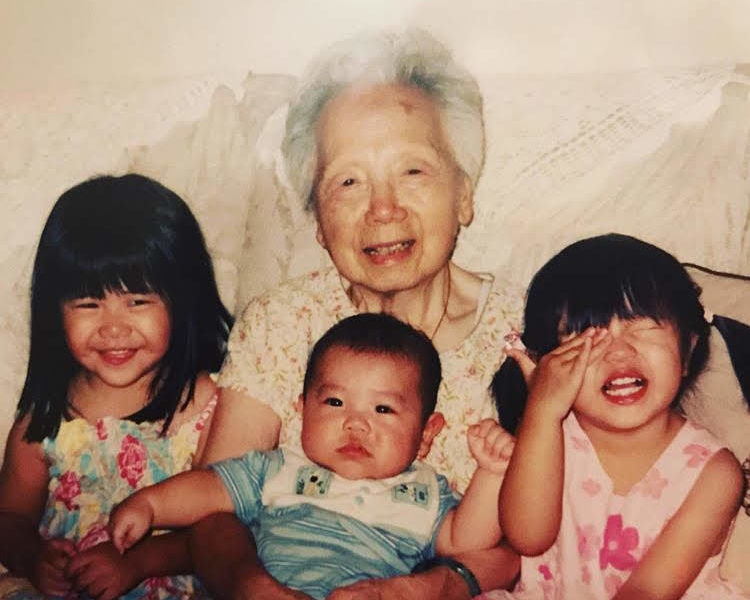
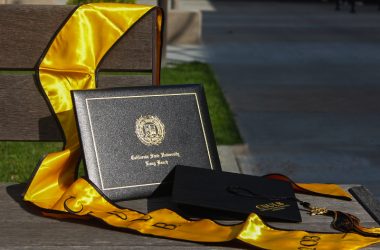
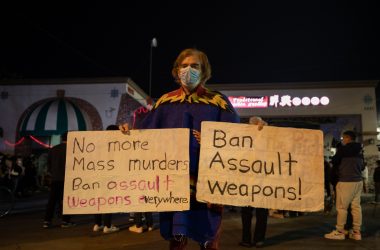
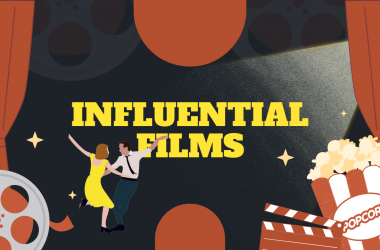
This article was a coming together of so many thoughts and conversations I have had recently. Thank you, Jireh. You are incredible! This article made me feel so seen but I know where your story ends and mine begins. Much love!!
This was a very thoughtful and thought provoking article. I’m Chinese-Hawaiian and proud of that. You inspire me. Bad on all those teachers who tried to squash your inquisitive nature. I’m so thrilled your love for learning overcame that. Thank you so much for writing this article
Well written and informative article. Nice work! There was a lot of information I didn’t know about. I’m glad I read this and learned a lot.
Insightful article. I learned a lot. Thank you, Jireh.